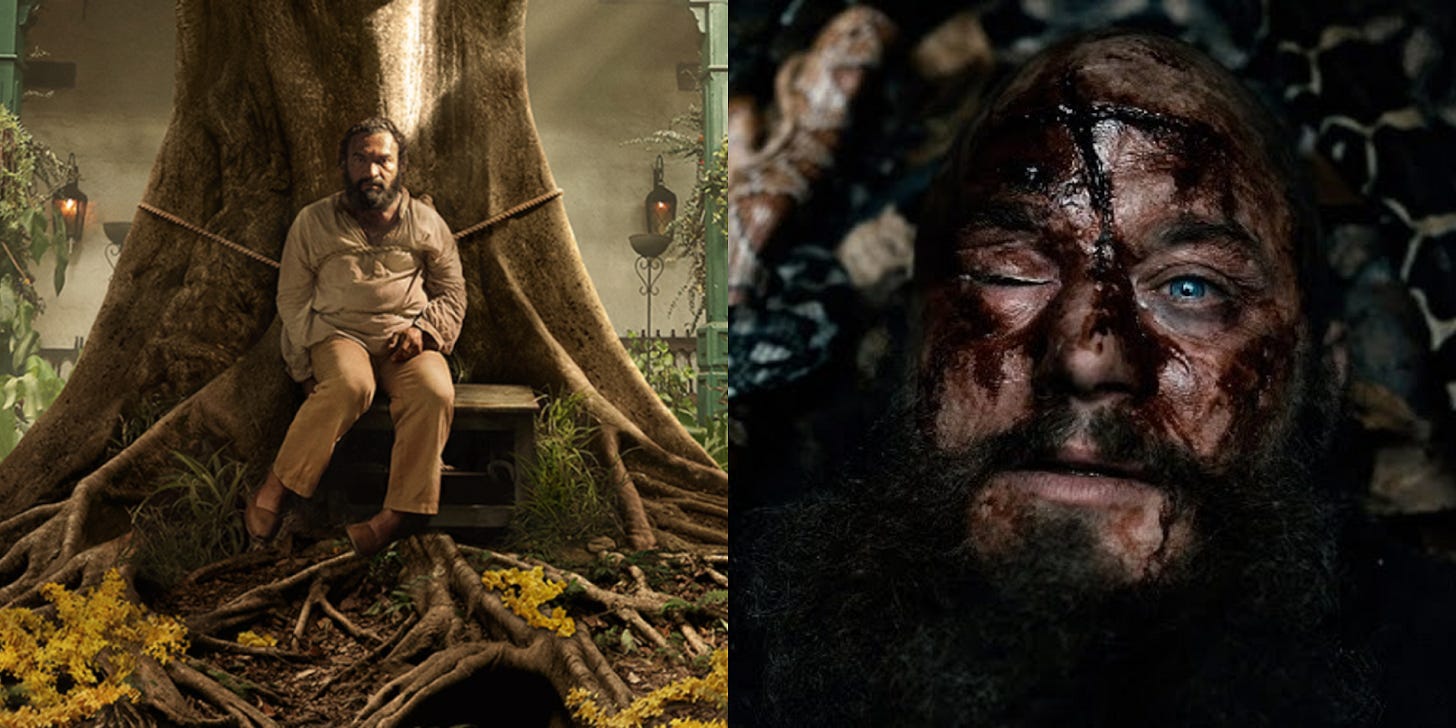"We can never be free of the myths we ourselves create." — Anonymous
Who are we when our visions outgrow us?
Put differently: What happens when the very dreams that define us begin to consume us?
Are we merely vessels for our ambitions, slaves to the legacies we desperately forge?
Do we exist only if our creations endure—or do we dissolve when they crumble? Are our identities formed in the crucible of success or in the slow decay of our inevitable decline?
In the parallel arcs of Ragnar Lothbrok and José Arcadio Buendía—one a semi-historical Norse warrior-king, the other the fictional patriarch of Macondo—we see a familiar myth rendered in two vastly different worlds: the rise of a visionary, followed by the slow, aching disintegration of the man behind it.
The Spark of Greatness
Before their contexts are even fully drawn, Ragnar and José Arcadio emerge as archetypal visionaries, restless and unsatisfied. They gaze through metaphorical blinds toward horizons others cannot see—Ragnar dreams of sailing west, José Arcadio of decoding the universe itself. Both stand at the threshold of ambition, peering through the darkness toward something that beckons.
Their initial triumphs are blinding. Ragnar's raids into England elevate him to legend. José Arcadio's founding of Macondo makes him its spiritual anchor.
Their followers adore them. Their authority seems indisputable. Warnings of hubris come but are waved away. Their conquests—physical for one, intellectual for the other—reflect a shared exuberance that masks the gathering shadows.
The Turning Point
It's pivotal that these figures should experience such meteoric rises, as the contrast only heightens their eventual falls. They build empires—of land, of knowledge, of belief. But neither man builds a structure that can outlast him.
As success calcifies into obsession, both fall out of rhythm with the world around them. Ragnar grows weary and disconnected. José Arcadio spirals into manic studies of ancient texts. Triumph turns inward. Vision narrows. And in that narrowing, isolation blooms.
The atmosphere shifts from triumph and celebration to something darker—tinged with isolation and growing madness. They become architects of their own undoing—not through failure, but through the dangerous inability to reconcile their success with its sustainability.
The Grotesque Stillness of Decline
Their final acts are not grand; they are grotesque.
Ragnar, captured and cast into a snake pit, dies abandoned—his greatness unrecognized in the moment.
José Arcadio, bound to a chestnut tree, mutters in Latin as his mind dissolves and his family abandons him.
Both become frozen in grotesque tableaux, suspended in time like monuments to ambition unmoored from reality. Their once-brilliant minds calcify around failed dreams. They are no longer men, but memorials—to a kind of striving that cannot be maintained.
The Obsession That Follows Them Home
Vitally, both leave their homes entirely when fulfilling their visions. If home is where the heart is, their ambitions prove a violation when revealed in their purest form. Both make Herculean efforts to cross vast physical and metaphorical distances, trying to reach a form of transcendence before their human limitations catch up.
They don't quite make it, but their efforts make eye contact with eternity just at the moment they are prepared to open themselves fully to possibility.
What makes these stories truly devastating is not just their fall but how inevitable it feels. Having long admired these characters for their vision, we find ourselves wiped out by their attachment to fading dreams. Their quests, once noble, begin to feel fevered. Their connection to others thins. Even moments of triumph carry the weight of a quiet, creeping despair.
Legacy or Loop?
And yet, something remains.
Ragnar's death becomes the catalyst for his sons' vengeance, reshaping history through conquest. José Arcadio's madness embeds patterns of repetition and solitude that will haunt generations of Buendías.
Neither legacy is clean. Both echo through time—but warped, untamed. They are warnings as much as inspirations. Their 'little games' with fate allowed history and literature to wrestle with the elephant in the room: the double-edged nature of visionary ambition.
A More Honest Kind of Change
Most stories treat change like a cure, a fix for broken things, a way to restore balance, resolve conflict, and offer redemption. But these arcs offer no such mercy. In fiction, we’re often told that “change is good,” a mantra as common and as empty as any fortune cookie wisdom. Yet the transformations Ragnar and José Arcadio undergo are not redemptive—they are unsettling, even horrifying. Though their creators often put these characters through the wringer, their stories reflect something essential about human nature.
These are not tales of men becoming better. They are tales of men being consumed by the very thing that made them great.
That's what makes them feel true. Not because we all become legends or lose our minds beneath a chestnut tree, but because we all wrestle with the same impossible equation: How do we chase something larger than ourselves without losing who we are?
These men didn't find the answer. But in watching them board the same metaphorical elevator to obsolescence, we begin to understand the question.
“After all, we are who we are. And [maybe] nothing will change that.”






This was an extremely beautiful read. Hassan’s proficiency at using words to convey his thoughts come to the fore here, enjoyed every bit of this. I could follow your mind - the queries and the convictions. It’s a beautiful work of literature. Thank you.